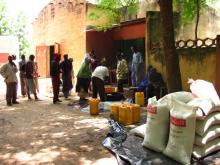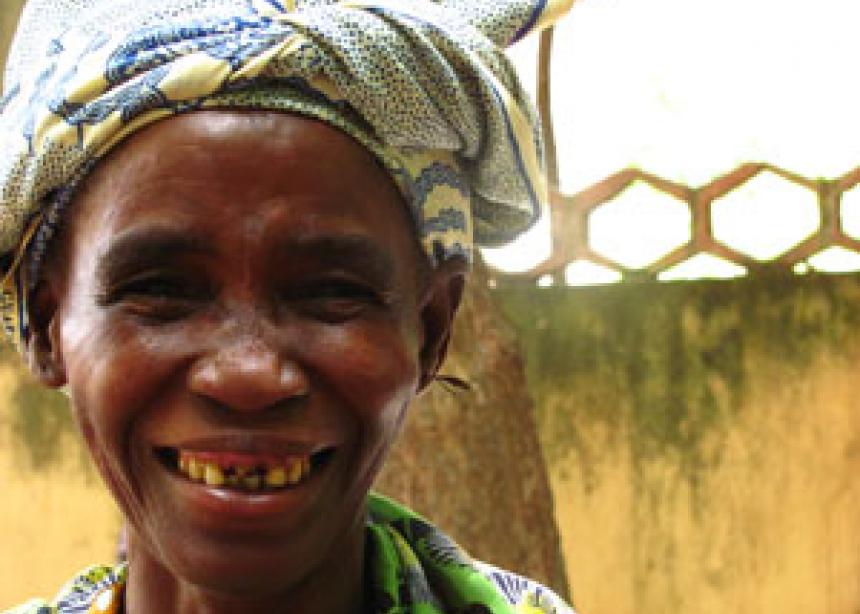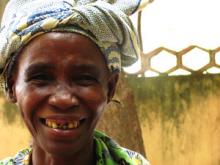For Sara Doua of Bamako, Mali, receiving a three-month ration means she no longer has to go door-to-door asking her neighbours for food.
“It has been at least five months since I have seen this much food in my house,” she said of the 135 kilos of maize, 25 kilos of beans, and nine litres of oil she received through a recent Canadian Foodgrains Bank-supported food distribution. The food, which is enough for two months, means the 50-year-old widow “won’t have to go door-to-door anymore” asking for food. “I can go out without shame,” she said. “This has helped me reclaim my dignity.”
The distribution was part of a $10 million Foodgrains Bank’s response to the food crisis in West Africa’s Sahel region, where 18 million people are at risk of hunger after poor rains caused massive food shortages in many areas.
Sara, whose small frame seems to sag under the weight of her daily struggle to feed her family, became a widow 15 years ago. She was making millet beer to support her family until she developed respiratory problems; she had to give it up. Before receiving the food ration, she was eking out a living by picking the leaves of the baobab tree, which are used to make a type of sauce in Mali. It would take her about half a day to pick a bag, which she could then sell at the market for a few dollars. This year, however, with her crops all gone, she has also been forced to go door-to-door to ask for food.
The distributions in Mali are timed to provide food until the staple millet crop is harvested in October. Partners on the ground are reporting that the crop so far is looking good.

A food distribution in Mali, implemented by Caritas Mali, with support from Canadian Foodgrains Bank members Development and Peace, MCC and the United Church of Canada, targets those most vulnerable in the community, including widows, pregnant and nursing mothers, men who are supporting very large households, and people with physical disabilities.




Add new comment
Canadian Mennonite invites comments and encourages constructive discussion about our content. Actual full names (first and last) are required. Comments are moderated and may be edited. They will not appear online until approved and will be posted during business hours. Some comments may be reproduced in print.